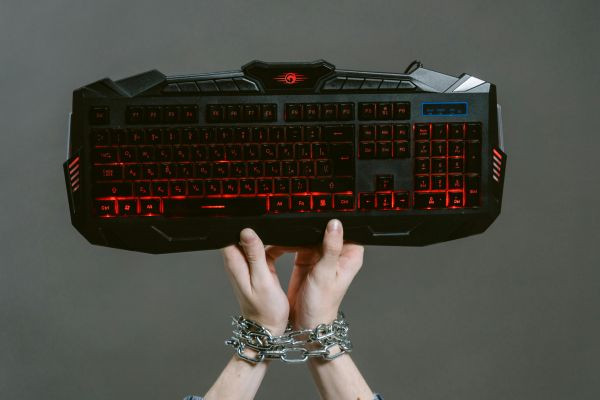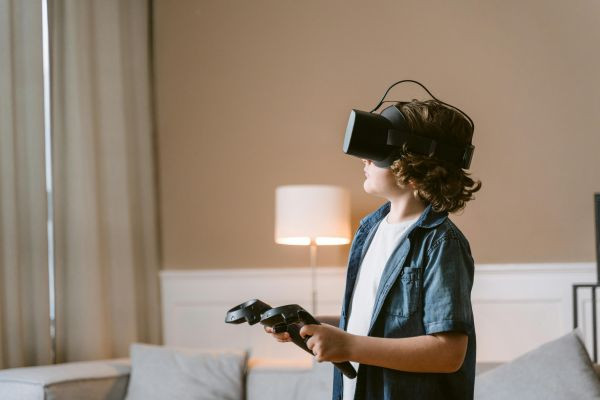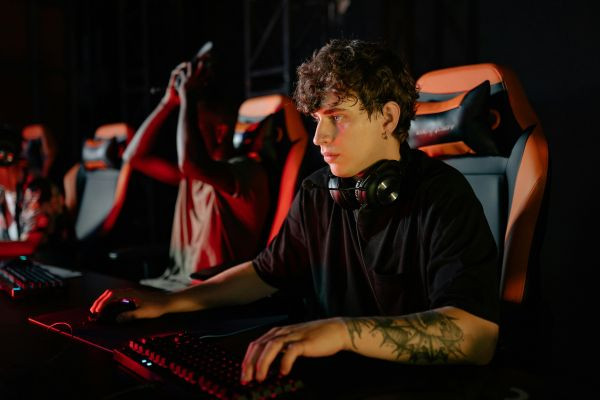Sharp reflexes and quick reaction times are the difference between winning and losing in the fast-paced world of gaming.
12/07/24 • 199 Views
Sharp reflexes and quick reaction times are the difference between winning and losing in the fast-paced world of gaming. Be it a heated first-person shooter, an intense fighting game, or a strategic MOBA, swift response is the key. Fortunately, reflexes and reaction time are skills that can be honed with practice, proper techniques, and a focus on physical and mental well-being. Here's a comprehensive guide to improving your reflexes and reaction time in gaming.
1. Understand the Importance of Reflexes in Gaming
Before diving into the methods, it's important to understand what reflexes and reaction time mean in a gaming context:
Reflexes: Your ability to react and move instinctively fast, triggered by a stimulus.
Reaction Time: How quickly you take in information and react through a button press, movement, or game decision.
Mastering these will have you playing with the skills that help you outplay opponents and get your shots when it matters.
2. Practice Frequently to Build Muscle Memory
Repetition is essential to developing quicker reflexes. Consistent practice trains your brain and muscles to operate in tandem, providing for instinctive reactions to the stimuli in-game.
Play Game-Specific Situations: Play game modes or situations that require a fast reaction, such as shooters with aiming or fighting games requiring counterattacks.
Practice against Bots: The most excellent way to develop your reflexes without pressure of an actual match is through training against bots or AI opponents.
Use Custom Drills: Many games or third-party applications provide aim trainers or reflex training programs specifically for certain types of genres.
Pro Tip: To get the most accuracy and reaction time, use tools like Aim Lab or Kovaak's FPS Aim Trainer.
3. Hand-Eye Coordination
Hand-eye coordination is a general skill for gamers. It translates what you see on the screen into exact actions.
Play Reflex-Based Games: Try rhythm games or arcade-style games that demand a quick reaction. These are great and fun, and it can be improved by coordination.
Mini-Games and Apps: Tools like Reflex Tester or Human Benchmark provide quick exercises to test and improve hand-eye coordination.
Try Peripherals: For those into gaming, try using the following peripherals: mice with adjustable DPI or controllers with customizable sensitivity according to your preference.
Pro Tip: Ensure proper grip and posture for smooth hand movements while playing.
4. Customize Your Setup for Performance
A finely-tuned gaming setup can significantly reduce latency and improve reaction time.
Monitor Refresh Rate: A high refresh rate monitor, such as 120Hz or 144Hz, can minimize screen lag and offer smoother graphics.
Low Input Lag Devices: Opt for a gaming mouse, keyboard, or controller that is built with low latency in mind.
Stable Internet Connection: For online games, a low ping ensures faster communication between your actions and the game server.
Pro Tip: Tweak your in-game settings for optimal performance, such as reducing graphics to minimize distractions.
5. Stay Physically Active
Physical fitness plays a surprisingly important role in improving reflexes and overall performance in gaming.
Hand and Finger Exercises: Strengthen your hands with simple exercises like finger stretches, grip squeezes, or using stress balls.
Eye Training: Do exercises to decrease eye strain and improve focus. Periodically look at distant objects to relax your eyes during long gaming sessions.
Reaction-Based Drills: Do real-life activities such as table tennis, badminton, or even juggling to train quick reflexes.
Pro Tip: Avoid overexertion. Rest your hands and eyes regularly to prevent fatigue.
6. Mental Acuity
It is as much a mental activity as it is physical. A sharp mind reacts faster and makes better decisions.
Meditation and Mindfulness: Practice mindfulness techniques to improve focus and reduce stress, which can impede reaction time.
Brain Training Games: Play cognitive games that challenge memory, attention, and processing speed, such as Lumosity or Brain Age.
Avoid Distractions: Create a clutter-free gaming environment to maintain concentration during matches.
Pro Tip: Maintain a positive mindset. Confidence boosts your decision-making abilities and reflexes.
7. Improve Your Diet and Sleep
Your physical and mental performance is directly influenced by your lifestyle choices.
Stay Hydrated: Dehydration can impair cognitive function and slow down reaction time.
Eat Brain-Boosting Foods: Incorporate foods rich in antioxidants, Omega-3 fatty acids, and vitamins, like blueberries, salmon, and nuts, into your diet.
Prioritize Sleep: Poor sleep leads to slower reflexes and decreased focus. Aim for 7-9 hours of quality sleep each night.
Pro Tip: Avoid energy drinks before gaming. While they may provide a temporary boost, they can lead to crashes and long-term dependency.
8. Play Strategically
Sometimes, speed isn’t just about reflexes; it’s about knowing when to act.
Predict opponent behavior: you can react quicker than waiting for them to do so.
Calm under pressure: panicking slows your reaction time. Practice being calm in critical moments.
Positioning is everything: being in advantageous positions can minimize split-second reactions.
Pro Tip: watch professional gameplay or streamers to learn advanced strategies and positioning techniques.
Improvement in reflexes and reaction time while gaming can only be achieved by practicing it, preparing both the physical and mental aspect of oneself, and also through optimal equipment. Consistent practice will keep you on track toward gaining that improvement in gaming. Maybe it's for getting into leaderboards or simply playing better than the day before; it really helps you react faster, play smarter, and win.
Happy gaming!









